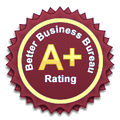Hard Money Mortgages
Hard Money Loans: An Overview
What They Are
Hard money loans are short-term, asset-based loans primarily used by real estate investors. Unlike traditional bank mortgages, they are issued by private investors or lending companies and rely on the property’s value rather than the borrower’s credit history.
How They Work
-
Asset-based lending: Approval is based on the property’s value (collateral), not borrower credit.
-
Property valuation: Lenders consider the property’s after-repair value (ARV). Loan amounts typically cover 65%–80% LTV (loan-to-value).
-
Quick approval & funding: Often funded in days or weeks, versus months for conventional mortgages.
-
Short-term repayment: Terms last from a few months to a few years, usually with interest-only payments and a balloon payment at the end.
-
Higher costs: Interest rates are often in the double digits, with significant origination fees or “points.”
Who Uses Them
-
House flippers: Buy, renovate, and resell quickly.
-
Borrowers with poor credit: Unable to qualify for conventional loans.
-
Bridge financing users: Need capital quickly while waiting for property sales or long-term financing.
-
Developers: Acquire land or finance construction projects not typically funded by banks.
Risks & Disadvantages
-
Foreclosure risk: Lender can seize the property if the borrower defaults.
-
High costs: Expensive interest and fees can erode profits if timelines extend.
-
Balloon payment pressure: Borrowers need a clear exit strategy (sale or refinance).
-
Minimal regulation: Less oversight compared to traditional loans; risk of predatory practices.
-
High down payment: Often 20%–35% required upfront.
✅ Key Takeaway: Hard money loans are a fast, flexible financing tool for real estate investors—but they come at a steep cost and require a solid plan for repayment or exit.


